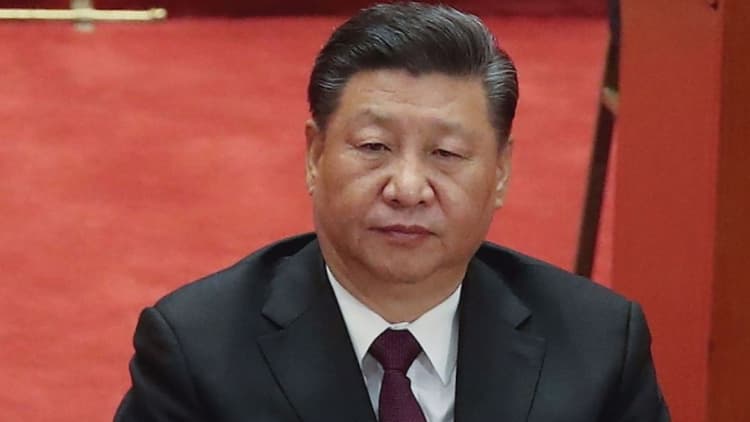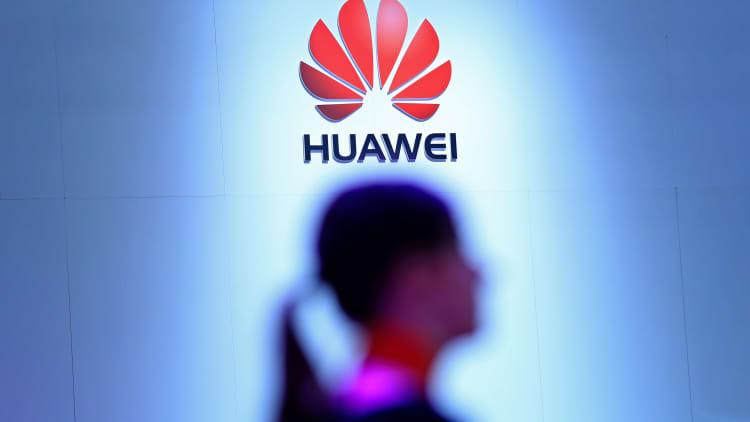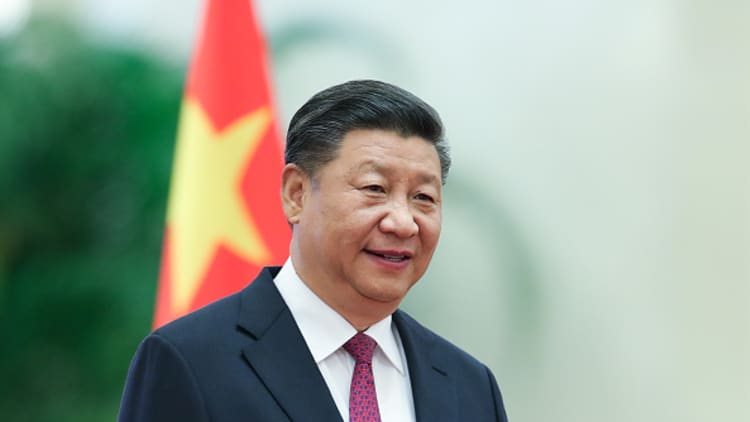
Chinese President Xi Jinping addressed his nation Tuesday morning in Beijing to commemorate the 40th anniversary of China's "reform and opening up" — and he struck a relatively defiant tone in response to international calls for changes to his country's economy.
His remarks focused on how China's Communist Party guided the nation to its economic success and emphasized the country's right to pursue its own path going forward. In an address that lasted nearly 1 1/2 hours, Xi did not mention trade tensions with the U.S. and made only passing reference to market-oriented reform goals that previous speeches have discussed in detail.
That idea of progress contrasts with other countries' increasingly vocal demands for less state control and could have significant consequences for whether the U.S. reaches a trade deal with China by the end of its 90-day tariff ceasefire.

"No one is in a position to dictate to the Chinese people what should or should not be done," Xi said in Mandarin Chinese during the speech, according to an official translation broadcast through state media.
The past 40 years eloquently prove that the path, theory, system and the culture of Socialism with Chinese Characteristics ... are completely correct, and that CPC theory line and policy that have since taken shape are completely correct.Xi Jinpingpresident, China
He called for China to "stay the course" on its current path.
"What to reform and how to go about the reform must be consistent with the overarching goal of improving and developing the system of Socialism with Chinese Characteristics and modernizing China's system and capacity for governance," the Chinese leader added. "We will resolutely reform what should and can be reformed, and make no change where there should and cannot be any reform."
Dec. 18 commemorates how Chinese leader Deng Xiaoping's restructuring of the economy in 1978, paving the way for individual ownership in some industries and allowing foreign companies limited access. Many credit the policy change for helping lift hundreds of millions out of poverty and turning China into an economic powerhouse that now ranks second only to the United States.
During Tuesday's ceremony, Beijing recognized 100 "reform pioneers" and 10 recipients of the "China Friendship Medal." They included Alibaba founder Jack Ma, Tencent CEO Pony Ma, retired NBA basketball player Yao Ming, former AIG CEO Maurice "Hank" Greenberg and Klaus Schwab, founder of the World Economic Forum which runs annual conferences in Davos, Switzerland, and China.
"The past 40 years eloquently prove that the path, theory, system and the culture of Socialism with Chinese Characteristics pioneered in the wake of the Third Plenary session of the 11th (Communist Party of China) Central Committee by the Chinese people of all ethnic groups rallying under the leadership of the CPC are completely correct, and that CPC theory line and policy that have since taken shape are completely correct," Xi said.
"The past 40 years eloquently prove that China's development provides a successful experience and offers a bright prospect for other developing countries as they strive for marketization," he added.
He touched on the rapid growth of Shenzhen and coastal cities, China joining the World Trade Organization, the country's "belt and road" initiative, establishment of free trade zones and the country's first Chinese import expo in November.
Claims 'crushing victory' over corruption
Xi also noted how his "anti-corruption campaign has delivered a crushing victory" and how the power of law has been strengthened to provide stronger institutional and legal guarantee. The Communist leader also claimed that "progress has been achieved across the board" in human rights, and called for improvement of democratic institutions.
Many outside China question those claims about human rights. The United Nations reported in August that China holds up to 1 million ethnic minorities from its Xinjiang region in political "re-education camps."
And importantly for the trade talks, critics say China did not achieve its economic success without stealing intellectual property and undermining global market forces with state support. They add that Beijing has benefited from joining the World Trade Organization in 2001 but has not followed commitments to reduce government control.
After Xi assumed power in 2012, Beijing's initial policy was more market-oriented. But in recent years, the direction has reversed and reform is not moving forward in eight of 10 areas tracked by The China Dashboard, a joint project between the Asia Society Policy Institute and the Rhodium Group.

Throughout his speech, Xi emphasized his vision of the Communist Party's centrality in all future reform, and noted that "the centralized unified leadership of the party" had overseen the economic transformation over the last 40 years.
He closed his speech by emphasizing commitment to reform and opening up, improving the lives of Chinese people and creating "miracles that will truly impress the world."
This year, Xi abolished the presidential term limit for his one-party-led country. The clause "Xi Jinping Thought on Socialism with Chinese Characteristics for a New Era" was also added to the Chinese constitution, following mentions of former Chairman Mao Zedong's and Deng's contributions.
Meanwhile, the U.S. under President Donald Trump is stepping up pressure on China with tariffs on the bulk of the country's exports to America. Beijing retaliated with duties of its own, and the escalating trade tensions between the world's two largest economies have roiled global markets. Trump and Xi reached a temporary ceasefire earlier this month with the U.S., agreeing not to increase tariffs if the two countries can reach some resolution on issues such as forced technology transfer within 90 days.
Some hope the pressure from the West will push Xi to speed up restructuring of the economy, details on which were lacking in Tuesday's speech. It's possible that Xi wants to hold back from revealing too much ahead of further negotiations with the United States. Other announcements could also come from the upcoming Central Economic Work Conference — a key meeting of top party leaders and policymakers widely expected to begin this week.
But Xi's nationalistic tone didn't appear to leave him much wiggle room to balance two goals: strike a significant trade deal on the one hand, while saving face amid U.S. pressure on the other. In this way he is likely setting China on a course that runs counter to an increasingly adversarial U.S., perhaps best exemplified by an October speech from Vice President Mike Pence.


